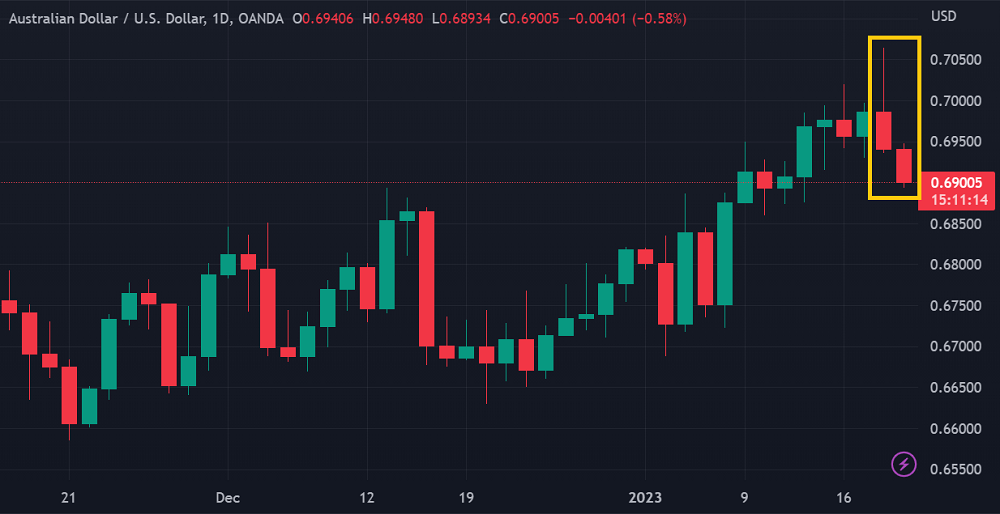News from Australia and New Zealand may not have an impact in the long term. But, they are a highlight in the short term.
The US dollar index (DXY) experienced further weakness in the Asian session on Thursday (19/January). However, AUD/USD and NZD/USD fell from their previous record highs. AUD/USD had fallen around 0.6 percent to 0.6900, while NZD/USD slipped around 0.5 percent to 0.6400.

Several factors weighed on the antipodean currency duo today. First, market sentiment worsened due to the release of US retail sales data last night, increasing fears of a global recession. The Australian dollar and New Zealand dollar are very sensitive to such changes in sentiment, so they also weakened in the second half of the New York session.
Market sentiment further worsened following the next two news, namely the release of Australian employment data and the resignation of the PM of New Zealand. Both are likely to have no impact in the long term but are of concern to some market players in the short term.
Layoff Increases
Australian employment data shows a decrease in the number of people employed by 14.6k in December. Though, the consensus expects an increase of as much as 22.5k. Australia's unemployment rate was also stagnant at 3.5 percent, or worse than the consensus estimate, which was pegged at 3.4 percent.
Developments in these data are classified as moderate, so they will not necessarily affect the Australian Central Bank (RBA) policy decisions. The Australian Statistics Agency (ABS) also emphasized that labor market conditions are still tight because immigration flows have driven the growth of the productive age population beyond the pre-pandemic period.
Prime Minister Resigns
In New Zealand, PM Jacinda Ardern suddenly announced she had "no more energy" to continue leading the country. Therefore, Ardern has decided to resign from her position no later than February 7, 2023, and will not seek re-election.
New Zealand's Labor Party will hold elections for a new leader on Sunday. The new Labor leader will replace Ardern as Prime Minister of New Zealand until elections are held on 14 October 2023.
Leadership succession that runs smoothly usually does not trigger fluctuations in currency exchange rates. Analysts will next look at the replacement candidates for Ardern to gauge the impact of a change in Prime Minister on New Zealand's economic policies.

 Dedicated FREE FOREX VPS
Dedicated FREE FOREX VPS Free FOREX Virtual Private Server
Free FOREX Virtual Private Server MT4 Demo Contest, Get $500
MT4 Demo Contest, Get $500 Sign Up for an Account, Claim 60% Deposit Bonus
Sign Up for an Account, Claim 60% Deposit Bonus Free MT4/MT5 VPS 2024
Free MT4/MT5 VPS 2024 Send E-mail and Get Free Merchandise
Send E-mail and Get Free Merchandise $1K Refer a Friend Bonus for Pepperstone Pro clients
$1K Refer a Friend Bonus for Pepperstone Pro clients Maximize Your Earnings with 100% Deposit bonus
Maximize Your Earnings with 100% Deposit bonus Trade to Win, $5,000 Monthly Demo Contest
Trade to Win, $5,000 Monthly Demo Contest Claim 30% + 15% Deposit Bonus from LiteFinance
Claim 30% + 15% Deposit Bonus from LiteFinance






